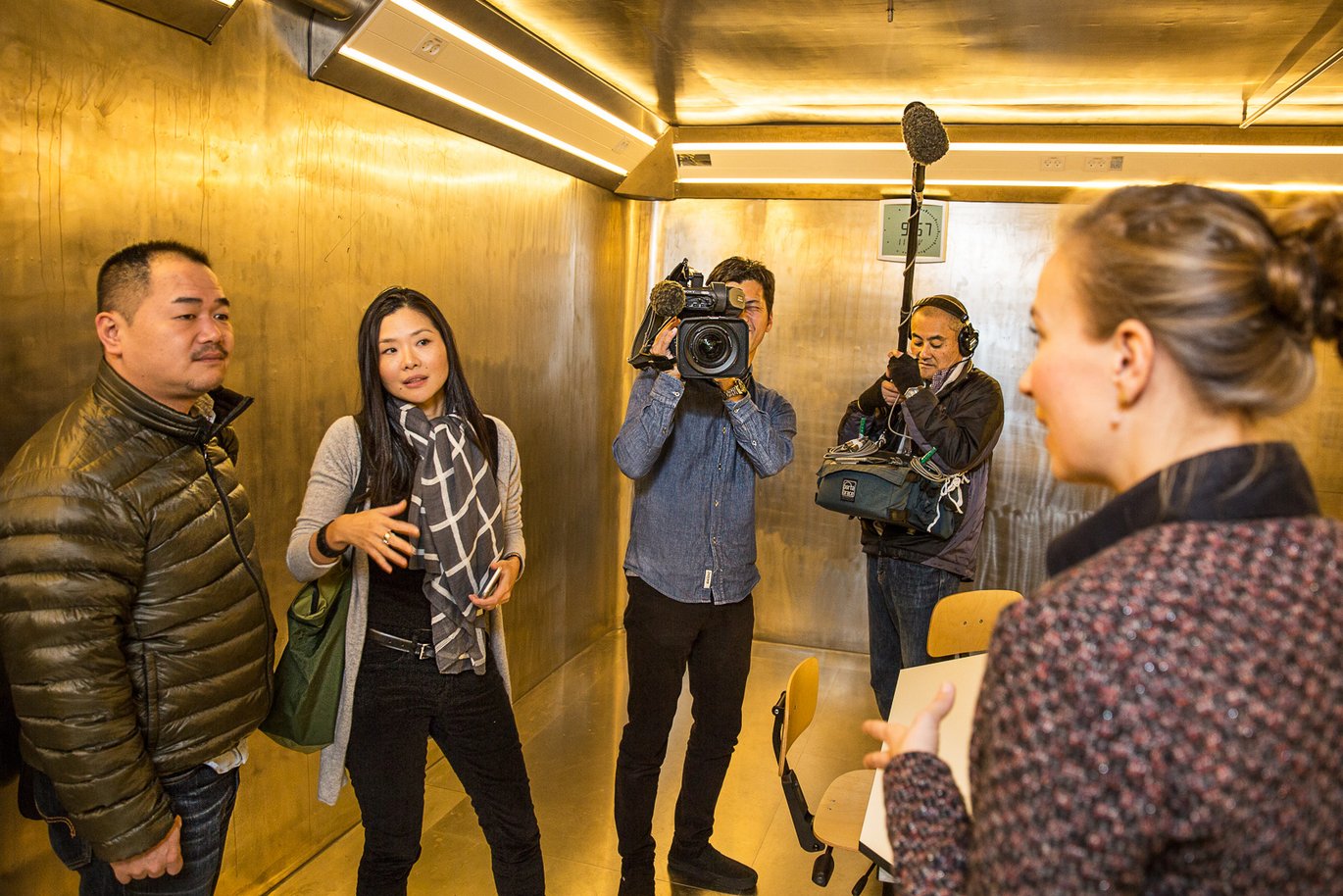Japanese TV films AU research for a programme on allergy
Researchers from AU take part in a Japanese TV programme on the newest allergy research worldwide. The TV crew from Japan visited the Department of Public Health and the Department of Clinical Medicine – and the programme will be shown to millions of viewers in the spring.

Allergy research at Aarhus University is so interesting and so advanced that Japan's national broadcasting company NHK has sent a four-man television crew to Aarhus to find out more. The result will form part of the production of a sixty-minute programme on the newest allergy research around the world.
The TV crew has travelled here to film sequences in the climate chambers at the Department of Public Health and in the laboratories at the Department of Clinical Medicine, though they have also taken a trip to Låsby outside Aarhus to meet a man who got rid of his hypersensitivity symptoms after having worked on a pig farm.
While researching the programme NHK’s Mayu Kamide discovered that research from AU has shown how even adults can experience reduced risk of hypersensitivity symptoms towards e.g. pollen if they move to the countryside and work with animals.
Postdoc Grethe Elholm from the Department of Public Health is behind the surprising research findings.
"We already knew from other research results that growing up in the countryside among animals can provide protection against allergies, but the fact that adults can also feel better is a new finding. And that was why we contacted Grethe Elholm,“ says principal program director Masatoshi Kaneko from NHK.
Making a contribution to the world
At first Grethe Elholm actually thought that the inquiry from Japan was a spam e-mail:
"But then I realised that it really held water and that we would have the chance to tell millions of viewers in Japan and probably also later in the USA and Europe about our research. Being able to show that our research is of importance to people and that we make a contribution – that is really significant," she says.
The contact has also resulted in the TV crew becoming interested in PhD student Peter Kenney’s research at the Department of Public Health into the effect of a physical nasal filter against seasonal hay fever. Finally, the programme producer also decided to include Professor Hans Jürgen Hoffmann’s study at the Department of Clinical Medicine of the effect of intralymphatic immunotherapy on the treatment of grass pollen allergy.
"Allergies are a problem all over the world, and one that is apparently out of control. Our programme will try to find out why this is the case and we ask, among other things, whether it could be due to the modern lifestyle," says Masatoshi Kaneko.
"We also present examples of new research which provides hope that it will be possible to get rid of allergies – and not just try to treat them."
Masatoshi Kaneko produces programmes with scientific content for both the large Japanese market and for the USA and Europe. In connection with the TV programme in question the TV crew will visit researchers in the USA, Canada, Germany and the UK, while Japanese research is also included.
See more about the research findings mentioned in the programme: